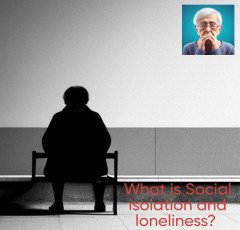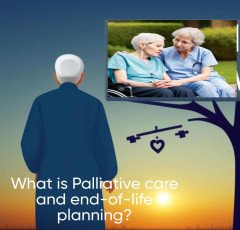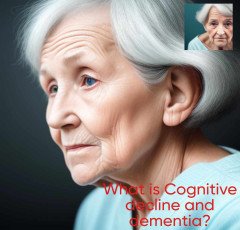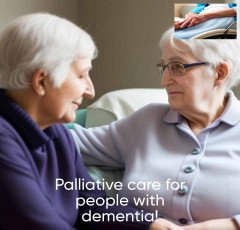
What is Social isolation and loneliness ?

When a person is socially isolated, they are not in contact with or interacting with others.
It may be forced upon one, such as by disease, disability, or social exclusion, or it may be a voluntary choice, such as preferring to live alone or work from home. Social isolation can cause loneliness and have a bad effect on both mental and physical health.
The subjective experience of social isolation or the perception of a lack of significant social connections is loneliness, on the other side.
Even when surrounded by other people, it is still possible to experience it, and it can either be a chronic condition or a passing mood. In addition to having detrimental consequences on physical and mental health, loneliness can also raise the chances of depression, anxiety, and cardiovascular disease.
Social isolation, a lack of social opportunities or abilities, or a feeling of being cut off from people are only a few of the causes of loneliness. Major life transitions like relocating to a new city, going through a divorce, or losing a loved one can also cause it.
Although they are connected, social isolation and loneliness are not the same.
In contrast to loneliness, which is a sensation of social isolation or detachment, social isolation is the absence of social contact or engagement. It is conceivable for someone to be socially isolated without experiencing loneliness or to experience loneliness despite being with other people.
Both loneliness and social isolation can have a bad effect on one's emotional and physical well-being.
If you're feeling alone or isolated, it's crucial to maintain relationships with other people and ask for help. This can entail getting in touch with friends or family, joining social groups or clubs, or, if necessary, looking for professional assistance.
Numerous methods can also be used to lessen social isolation and loneliness. These consist of:
Making an effort to connect with friends, family, and other members of your community can help you build social ties. Joining clubs or groups that are related to your interests, volunteering, or just getting in touch with someone you haven't spoken to in a while are all effective ways to accomplish this.
Engaging in meaningful activities:
Finding meaningful activities to participate in will help you fight loneliness. These activities should give you a sense of fulfillment or purpose. This could include pastimes, physical activity, or artistic endeavors.
Self-care:
Taking care of your physical and emotional needs will assist to lessen loneliness emotions. This may entail getting enough rest, eating healthfully, and taking part in activities that help people unwind and manage their stress.
Seeking professional assistance:
Talking to a mental health professional who can offer support and guidance can be beneficial if you're experiencing loneliness or social isolation.
Should keep in mind that loneliness and social isolation are normal problems that many people deal with at some time in their lives. We can lessen the effects of these emotions and enhance our general wellbeing by making efforts to develop meaningful relationships, participate in worthwhile activities, and take care of ourselves.
It's also crucial to keep in mind that social exclusion and loneliness can be particularly difficult for some people, such as elderly people, persons with disabilities, and people who are marginalized or socially excluded. For these populations, there can be more obstacles in the way of getting social support or taking part in worthwhile activities.
Recognizing the value of social connections and working to lessen structural and societal elements that contribute to social isolation and loneliness are crucial for society as a whole. This could entail fostering more inclusive communities, offering aid and assistance to those who are most in need, and advocating for laws that place a high priority on social welfare.
Complex problems like social isolation and loneliness can have negative effects on our mental and physical well-being.
We may lessen the negative consequences of these feelings and enhance our general wellbeing by taking steps to develop social relationships, participate in worthwhile activities, and seek support when necessary.
Noting that the COVID-19 pandemic has brought attention to the problem of loneliness and social isolation for many people worldwide.
Particularly for people who live alone or are more likely to suffer from serious sickness, the requirement for physical separation and limitations on social gatherings have heightened feelings of loneliness and estrangement.
The pandemic has, however, also sparked creative ideas and raised awareness of the value of social relationships.
Numerous groups have discovered new means of communication and mutual support, such as online meetings, phone calls, or outdoor activities that permit physical separation.
Prioritizing social ties and understanding the crucial role they play in our general well-being is key as we handle the ongoing challenges of the pandemic and beyond. We can lessen the effects of social isolation and loneliness and boost everyone's health and happiness by cooperating to build more welcoming and encouraging communities.
Social isolation and loneliness can have broader societal effects in addition to their effects on specific individuals.
For instance, research has demonstrated that social isolation and loneliness are linked to lower productivity and higher healthcare expenses.
Additionally, loneliness and social isolation can be a factor in a number of societal issues, such as substance misuse, homelessness, and criminality. We can enhance people's lives and build better, healthier communities by tackling the underlying causes of social exclusion and loneliness.
In general, loneliness and social isolation are complicated problems that call for a diversified treatment. This might entail both community-level efforts to foster more welcoming and supportive environments as well as individual-level interventions to foster social ties and encourage self-care.
It's critical to understand that social isolation and loneliness are social concerns that call for collective response rather than individual difficulties. The well-being of all societal members can be enhanced, and a more promising future can be created, by cooperating to build stronger, more interconnected communities.
It's important to remember that social media and other technological advancements can have both beneficial and detrimental effects on how we deal with loneliness and social isolation. On one side, these platforms can offer chances for social connection and assistance, especially for people who are unable to participate in in-person conversations.
Social media and other modern technologies, nevertheless, can potentially exacerbate feelings of social isolation and loneliness, especially if they are utilized excessively or in place of face-to-face encounters. When trying to develop long-lasting, meaningful relationships, it's critical to use these platforms responsibly and to be aware of the limitations of online interactions.
Our emotional and physical health, as well as broader societal repercussions, can be significantly impacted by social isolation and loneliness, which are complicated concerns. We can lessen the harmful consequences of these emotions and support greater health and happiness for all by putting a priority on social relationships and building more welcoming and encouraging communities.
Yes, and starting a conversation about loneliness and social isolation is one of the most crucial things we can do.
Many people are reluctant to say they are lonely or disconnected because they are ashamed or embarrassed, which might keep them from asking for assistance or support.
By eliminating the stigma associated with social isolation and loneliness, we can foster a more accepting and encouraging society where people are at ease asking for assistance and interacting with others. Starting discussions about the value of social connections and how social isolation and loneliness affect our health and well-being may be one way to do this with friends, family, or coworkers.
It's crucial to understand that combating social isolation and loneliness is a continuous process that calls for consistent effort and focus rather than a quick fix. This can entail staying in touch frequently with friends and family, taking part in community events and activities, and consistently practicing self-care.
Those who struggle with severe or persistent feelings of loneliness and social isolation may need to seek professional assistance.
Professionals in the field of mental health can offer advice and help for controlling these emotions as well as evidence-based interventions and methods for fostering deeper social bonds.
Occasionally, lessening social isolation and loneliness can also be helped by local resources like support groups, volunteer organizations, or faith-based organizations. Along with possibilities for fulfilling social contact and service, these groups can offer a sense of community and belonging.
In the end, combating social loneliness and isolation necessitates a multidimensional strategy that includes interventions at the individual, local, and societal levels. We can lessen the negative effects of social isolation and loneliness and advance greater health and well-being for all by realizing the value of social connections and collaborating to build more supportive and inclusive communities.
Yes, and it's crucial to keep in mind that social ties don't always have to be made with people we are familiar with.
Participating in enjoyable activities, including hobbies, athletics, or volunteer work, can also present chances for social connection and engagement.
Taking care of our physical health can also aid in lowering feelings of loneliness and social isolation.
Improved mental and physical health can assist our capacity to create and maintain social connections. Regular exercise, a balanced diet, and sufficient sleep can all help to promote improved mental and physical health.
Always be conscious of the fact that loneliness and social isolation can affect anyone, regardless of age, gender, or background. However, some populations, such as the elderly, those with impairments, or those who are poor, may be more at danger.
We can guarantee that everyone has the opportunity to establish and maintain strong social relationships and to benefit from social support and belonging by being aware of these particular issues and working to construct more inclusive and accessible communities.
Most definitely, and it's critical to tackle these situations with empathy and compassion rather than condemnation or blame.
It's not always simple for people to "snap out of it" or "put themselves out there." Social isolation and loneliness are complicated issues that can have a multitude of causes.
We can lessen the stigma associated with social isolation and loneliness and foster a community that is more hospitable and inclusive by fostering a culture of understanding and support. As well as encouraging education and understanding about the value of social support and connection, this may entail campaigning for laws and initiatives that foster social connections, such as those involving community centers, open areas, and transportation infrastructure.
At the end of the day, tackling social isolation and loneliness is a shared duty that necessitates action at the individual, local, and societal levels. Together, we can improve everyone's health and well-being and build a more socially connected and compassionate world by putting social ties and support first.
That's right, and it's critical to understand that tackling social isolation and loneliness requires both individual acts and societal change.
This could entail supporting community-based programs that foster social ties and a sense of belonging as well as pushing for laws that support social safety nets, healthcare, and housing that are affordable.
We can construct a society where social support and connections are valued and where everyone has the chance to establish and preserve enduring ties by cooperating on all levels. As a result, everyone's health and happiness may improve, reducing the harmful effects of social isolation and loneliness.
It's critical to keep in mind that having social support and connections is vital for our wellbeing and that social isolation and loneliness can have detrimental effects on both our physical and mental health. We can lessen the detrimental impacts of social isolation and loneliness and advance greater health and well-being for everybody by making conscious efforts to establish and maintain solid social bonds as well as by cooperating to construct more welcoming and supportive communities.
Indeed, and it's crucial to keep in mind that creating and maintaining social ties is a continuous process that needs work and care.
Being social beings who thrive in social situations, it can be difficult to reach out and connect with people, especially when we are feeling anxious or self-conscious.
Focusing on our hobbies or interests is a useful strategy for fostering social connections.
Joining a club or group centered around our interests can help us meet people who share them, which can make it simpler to strike up talks and form relationships.
It's also crucial to understand that social ties can take many different forms and do not always involve acquaintances. Smaller interactions, like chit-chatting with a neighbor or saying hello to the cashier, can go a long way toward creating a feeling of connection and belonging.
To put self-care first while attempting to create and sustain social connections.
Maintaining good physical and mental health might make us feel less anxious or self-conscious and give us the drive and inspiration to interact with people.
Our ability to establish and sustain social connections is crucial to our wellbeing, therefore it's crucial to approach it with thought and consideration. We can foster deeper social bonds and improved health and happiness for ourselves and others by putting an emphasis on the hobbies and interests we enjoy, appreciating the value of even brief social contacts, and placing a high priority on self-care.
Yes, and it's crucial to keep in mind that establishing and sustaining social relationships is crucial for both our own personal wellbeing and the wellbeing of our communities. Communities can become stronger and more resilient when people feel linked to one another because they are more likely to act positively and contribute to the common good.
Concentrating on empathy and compassion is one method to create social ties that are stronger.
We may develop trust and rapport with people, foster a more welcoming and inclusive environment, and improve our interactions with others by approaching them with compassion and understanding.
Furthermore, it's critical to understand that establishing lasting relationships with others requires time, effort, and sometimes even a willingness to stretch ourselves. This can entail making an effort to get in touch with someone new, going to a social occasion, or offering to help with a project or activity in the neighborhood.
In the end, creating and maintaining social connections is a continuous process that demands work and attention, but the benefits can be substantial. We may forge deeper interpersonal bonds and develop a more welcoming and inclusive community for all if we put empathy and compassion first, push ourselves to leave our comfort zones, and actively look for opportunities to connect with others.















 Unlimited access to classes on illustration, photography, design, film, music
Unlimited access to classes on illustration, photography, design, film, music  ELECTRONIC ACCESSORIES
ELECTRONIC ACCESSORIES  Men Clothing
Men Clothing  Hot Bags For Pain Relief
Hot Bags For Pain Relief  Favorite Company (Cuelinks)
Favorite Company (Cuelinks)  Graphics & Design
Graphics & Design  Best Robotic Vacuum Cleaners
Best Robotic Vacuum Cleaners  SOFAS
SOFAS  The Secret Email System
The Secret Email System  NordVPN
NordVPN  RPM 3.0
RPM 3.0  NordPass
NordPass  NordLocker
NordLocker  Women Fashion
Women Fashion  Online Marketing
Online Marketing  Best Selling Books
Best Selling Books  The Click Engine
The Click Engine  Best Home Appliances
Best Home Appliances  Amazon Best Selling Products
Amazon Best Selling Products  BEST SELLER TOP10
BEST SELLER TOP10  Smart Doorbell
Smart Doorbell  Artificial Intelligence
Artificial Intelligence  One World Collection
One World Collection  ASPINAL LONDON
ASPINAL LONDON  TitTok Revolution
TitTok Revolution  SEO Checklist
SEO Checklist  Unreal Engine 5 For Beginners Learn The Basics Of Virtual Production
Unreal Engine 5 For Beginners Learn The Basics Of Virtual Production  Sennheiser
Sennheiser  Hello Theme
Hello Theme  ASUS Laptop
ASUS Laptop  All Wireless Products
All Wireless Products  Only For The United States
Only For The United States  Acer Laptop
Acer Laptop  Online Technology Classes
Online Technology Classes  1150+Trendy kids coloring pages Bundle
1150+Trendy kids coloring pages Bundle  Best Sellers On Amazon
Best Sellers On Amazon  Top Rated From Amazon
Top Rated From Amazon  Creative Brief For Video Shoot
Creative Brief For Video Shoot 
















